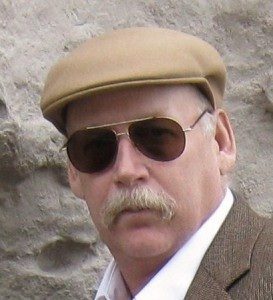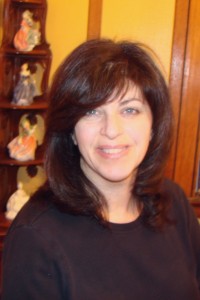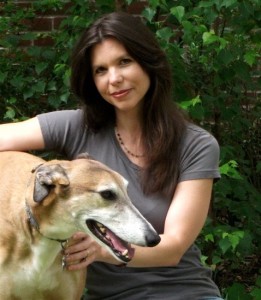 Susan Tepper: “199_, What I Wanted” is one of your lushest, most luscious stories that I’ve read. Immediately it brought to mind scenes from that film made of Proust’s “Swann in Love.” You write place and details that seem to drip sensuality. Bill, what was cooking in your mind when you started this story?
Susan Tepper: “199_, What I Wanted” is one of your lushest, most luscious stories that I’ve read. Immediately it brought to mind scenes from that film made of Proust’s “Swann in Love.” You write place and details that seem to drip sensuality. Bill, what was cooking in your mind when you started this story?
Bill Lantry: The story only exists because of a prompt, which I saw as a chance to be absolutely honest about both desire and writing. Every word is true, I try to never make stuff up, we only call it “fiction” because the language fails us. And every piece of writing should give the reader a place to dwell, a chance to live within the writer’s space a few moments. And what should be there? Desire. Passion. Jouissance. A chance to commune with the other, and through that communion experience something much larger. And readers can tell if there’s anything false within that space, if something’s invented. It’s not that they’re trying to catch a misstep, it’s just that they won’t be able to enter into the shared experience. There would just be sex, instead of actual love making. “How do you want me?” “I want you just as you are!”
Susan: Ah, desire. Totally. “… the leaves were covered in red dust…” Then you go on to write: “the way vines try to reach up and curl around the outstretched branch.” This enfolding of the natural world into the cloistered space of the bedroom and bed. Tell us more about the bed.
Bill: She asked me to make that, exactly the way she asked me to write the poem. To craft a place where we could be together. And it was built almost as an altar, elevated, a kind of sacred space. But above it, a strong frame made of copper. Just like in Horace. But once I’d made it, she transformed it, hanging the jeweled curtains around the upper rails, so they cascaded down around us, enclosing us. Just like jouissance, it was a shared project. She made the space, I’d created hers.
Susan: And you say she hung translucent drapes made of lace and pearls around this bed-altar. You say she always wanted to draw these drapes closed around them, though they hid nothing. Why, if they hid nothing? What did this act mean to her?
Bill: The creation of the symbolic, enclosed space is important, but at the same time peripheral. A way of foregrounding the frame, while backgrounding the essential. Yes, she draws the drapes closed, but they’re transparent. It’s very much like a sleeping circle, both there and not there. A defined enclosure which hides nothing. A place where the vortex can swirl into focus.
Susan: That’s fine. But what did it mean to your character, in the most personal sense, in that scene, in her heart and body?
Bill: The closing of the drapes prepares for a kind of opening. Or rather, it provides a defined space in which she can open herself completely. Ovid does the same thing, with nearly the same scene: “…For modest girls a reassuring shade, / Just the right sort of light, with curtains drawn…”
Susan: OK, now we’re getting somewhere. After all, it was you who created this sexy-altar-bedroom place, dripping with lace and pearls and copper. You placed these two characters in this dream-like Proustian, Swann so-in-love/lust setting. No point in going all intellectual on us now. Now that you got us into that bed with them. We, your loyal readers. We follow where you lead. So this is how she gets ready for the sexual act. OK. Very nice.
But then, a while later, she is out of the bed, gone, in another space, and doesn’t want to return to their love making. Until he writes her a poem. I mean, isn’t that just a tad manipulative? I wonder if Byron had to put up with that sort of thing? What is her motive now?
Bill: OK, so, Swann. He takes the orchid out of her hair, and places it between her breasts. Then he gets intoxicated by the fragrance as he caresses her. That’s gorgeous, but not quite the same. And Byron was a little over-focused on Byron, if I can say that.
Yes, what she does is manipulative, but it is what *she* wants. She’s a bit of a changeling, she believes she can become what his words invoke. There’s an odd duality: the poem is about her, but also calls her into existence.
Susan: Yeah, Byron was definitely focused on Byron! I’m laughing as I type this!
But to get back to your beautiful story. There is a surreal quality to the characters, setting, motivations, all of it, for sure. Yet you made it real enough so that we become engrossed, enrolled, enamored of them. Frankly, I want to go there and lie on that lace draped bed and have him spoon honey into my mouth. I want to see the light change in that room.
Last question: Would he still want her if she was more pliant?
Bill: That’s perfect, your reaction, your desire to be there, on that bed, with honey spooned into your mouth, is exactly what I wanted. We need to make love to our readers. I hope the reason it works is that the scene may seem surreal, but it’s the complete truth. Remember what Berryman said: “This did actually happen. This was so.” And Fowles: “Whole sight, or all the rest is desolation.” Or even Vonnegut: “All this happened, more or less.” The light does change, and she’s beautiful in that new light.
More pliant? It’s hard to imagine that. After all, she can become whatever I whisper, she can transform herself into anything, like Proteus. Like all of us, really.
Read “199_, What I Wanted” by Bill Lantry
Monday Chat is a bi-weekly series in which Susan Tepper has a conversation with a Fictionaut writer about one of his or her stories. Susan is Assistant Editor of Istanbul Literary Review, fiction editor of Wilderness House Literary Review, co-author of new novel What May Have Been, and hosts FIZZ, a reading series at KGB Bar.

 Mona Simpson
Mona Simpson

